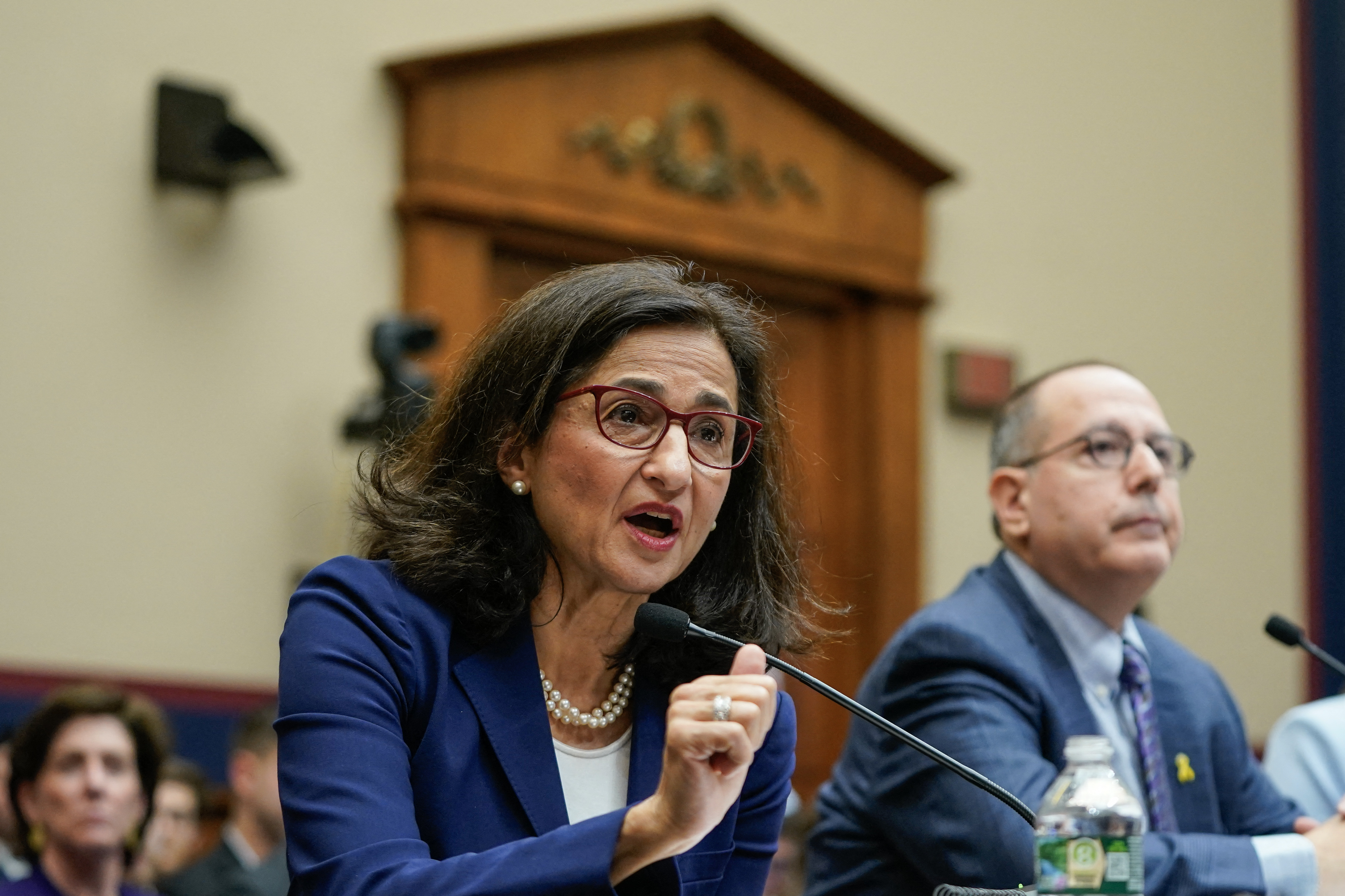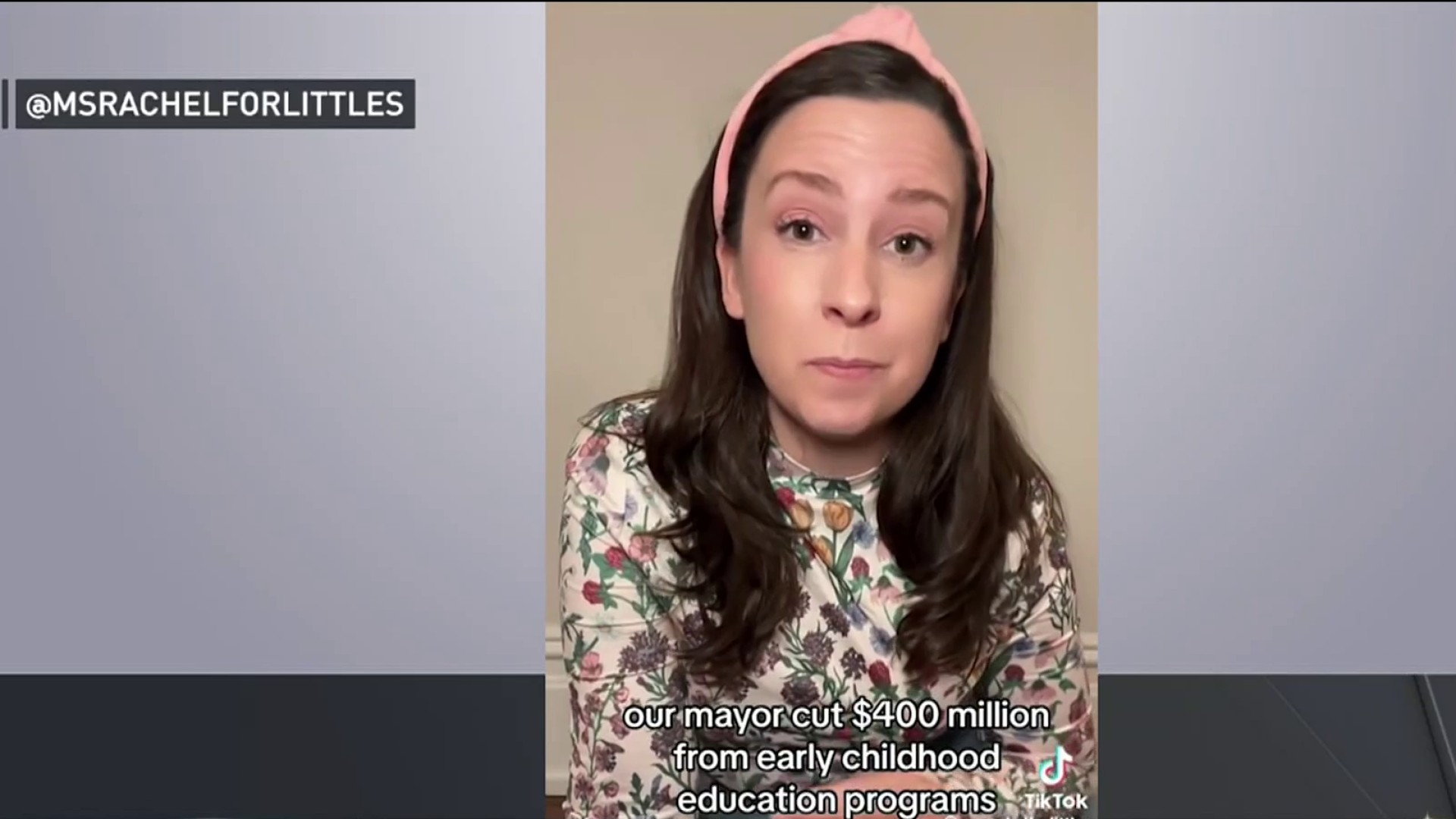Some witnesses in the criminal case against Jeffrey Epstein’s former girlfriend may face harassment and intimidation and could be reluctant to cooperate with the government if defense attorneys are allowed to discuss them publicly, prosecutors said Tuesday.
Prosecutors asked a Manhattan federal court judge to block lawyers for British socialite Ghislaine Maxwell from publicly identifying women who have already spoken about the financier or Maxwell on a public forum.
"The victims of Ghislaine Maxwell and Jeffrey Epstein have suffered enough," prosecutors said, urging privacy for accusers except for anyone who acknowledges publicly they are part of the criminal case against Maxwell.
Defense lawyers said Monday that banning them from publicly identifying alleged victims or potential witnesses in the case will hinder their ability to investigate, prepare witnesses for trial and advocate on Maxwell’s behalf.
Get Tri-state area news and weather forecasts to your inbox. Sign up for NBC New York newsletters.
"Permitting defense counsel to publicly identify witnesses who have not identified themselves on the record in this case risks subjecting witnesses to harassment and intimidation, with no conceivable benefit to the defense other than perhaps discouraging witnesses from cooperating with the Government," prosecutors wrote in court papers.
They said defense lawyers said they believed they could reference victims by name publicly prior to trial because the individuals had gotten a "benefit" by publicly identifying themselves.
News
"Beyond the offensive notion that victims of sexual abuse experience a 'benefit' by making the incredibly difficult decision to share their experience publicly, the suggestion that victims who receive this supposed 'benefit' should receive fewer protections than the law ordinarily offers to victims in criminal cases is alarming," prosecutors wrote.
The dispute arose as lawyers on both sides tried to agree on the rules of secrecy about evidence prior to a July 12 trial, when Maxwell will face charges that she recruited three teenage girls for Epstein to abuse in London and the United States in the 1990s.
Maxwell, 58, incarcerated since her July 2 arrest at her New Hampshire estate, has pleaded not guilty to charges alleging she sometimes joined in the abuse of the girls, which included one who was 14.
Epstein, 66, was facing sex trafficking charges in Manhattan when he killed himself last August while awaiting trial.
"The defense believes it should not be restricted from publicly disclosing or disseminating the identity of any alleged victims or potential witnesses referenced in the discovery materials who have already identified themselves by speaking on the public record," defense lawyers wrote in their submission.
Prosecutors, though, said "victims should be able to continue to come forward, in the ways and in the venues they themselves choose, without fear of reprisal, shaming, or other consequence arising from having their identities broadcast by defense counsel in this case."
Lawyers for Maxwell asked a judge Monday to stop her accusers from using evidence in the criminal case to boost civil lawsuits by posting materials to the internet. The lawyers argued attorneys for women who claim Maxwell recruited and abused them should be subject to the same secrecy rules as prosecutors and Maxwell’s defense lawyers.
The proposed order, submitted to a judge Monday, would prevent prosecutors and Maxwell's lawyers from releasing any information to the internet or elsewhere, including “nude, partially-nude, or otherwise sexualized images, videos, or other depictions of individuals."
The joint protective order is routine in sex abuse cases. But the lawyers said in a letter to the judge that prosecutors have refused to agree that witnesses in the trial and their lawyers should be subject to the secrecy rules.
“There is a substantial concern that these individuals will seek to use discovery materials to support their civil cases and future public statements," the lawyers wrote.



